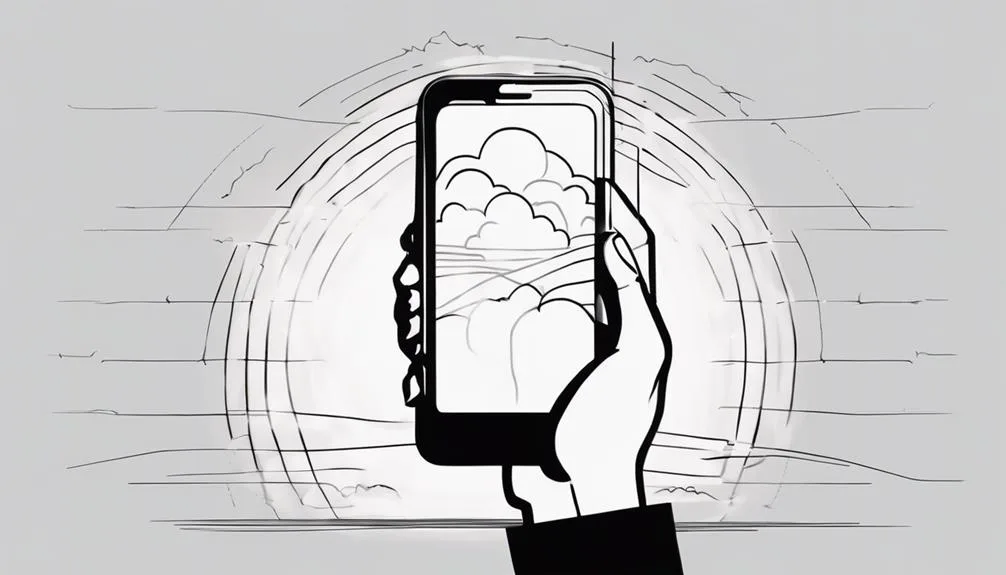Navigating a toxic relationship can be confusing. It's hard to tell if the constant criticism, lack of support, and uneven power you feel are normal or signs of emotional abuse and jealousy.
Recognizing these red flags is crucial for your mental health. This guide will help you identify when your relationship might be harmful and suggest it might be time to think about making a change for your own good.
Key Takeaways
- Recognize signs of emotional abuse, like gaslighting and isolation, as indicators of toxicity.
- Constant criticism and belittlement in a relationship can severely impact self-esteem and signal toxicity.
- An unbalanced power dynamic, through financial manipulation or decision-making control, is a clear sign of an unhealthy relationship.
- Frequent jealousy, control tactics, and lack of support highlight a toxic relationship needing attention.
Recognizing Emotional Abuse

Identifying emotional abuse is important, as it often goes unnoticed yet affects one's well-being. You may not see the scars, but the impact is deep and damaging. One key sign you're facing this is through gaslighting tactics. If your partner repeatedly denies your reality, making you doubt your memories or feelings, they're wielding a powerful psychological tool against you. It's not just about lying; it's about controlling your perception of truth.
Another red flag is isolation strategies. If they're cutting you off from friends and family, criticizing the time you spend with others, or monitoring your communications, they're isolating you. This isn't about being protective; it's about control. Recognizing these signs is the first step toward addressing the issue and seeking help.
Constant Criticism and Belittlement

Another form of emotional abuse that greatly impacts your self-esteem is constant criticism and belittlement by your partner. This relentless negativity can make you feel unworthy and doubt your abilities.
It's not just about occasional disagreements or constructive feedback, which are normal in any relationship. Rather, it's a critical tearing down of your character and achievements, often disguised as 'just being honest' or 'helping you improve.'
This behavior leads to a significant communication breakdown, as you might start to shut down or become defensive, further straining the relationship. It's important to recognize these patterns early on. If you're constantly made to feel lesser, it's a clear sign that the relationship is toxic and detrimental to your self-esteem.
Unbalanced Power Dynamics

In toxic relationships, one partner often holds more power, making you feel controlled and powerless. This imbalance can manifest in various ways, but some of the most common include:
- Financial manipulation, where one partner restricts access to money or resources, making you financially dependent on them.
- Isolation tactics, limiting your interactions with friends and family to increase your reliance on them.
- Making all major decisions without your input or consideration of your wants and needs.
These strategies are designed to undermine your autonomy, making it difficult for you to make decisions or take actions without their approval.
Recognizing these signs is the first step towards addressing the issue and reclaiming your power in the relationship.
Lack of Support and Understanding

While unbalanced power dynamics undermine your autonomy, a lack of support and understanding can equally erode your emotional well-being. When your partner consistently fails to offer empathy or disregards your needs, it's a clear sign of toxicity. This often manifests as a communication breakdown, where your attempts at dialogue meet walls instead of bridges.
| Signs of Toxicity | Your Experience |
|---|---|
| Communication Breakdown | Conversations often lead to misunderstandings or are avoided altogether. |
| Isolation Tactics | You're discouraged from seeing friends or family. |
| Lack of Emotional Support | Your feelings are minimized or ignored. |
| Disregard for Your Needs | Your partner shows little interest in what's important to you. |
These patterns suggest a relationship that's more draining than nurturing, highlighting the critical need for support and understanding.
Frequent Jealousy and Control

Jealousy often masks itself as concern, but frequently it's a tool for control in a toxic relationship. This behavior can escalate, leading to actions that severely impact your sense of freedom and self-worth. Recognize the signs:
- Privacy Invasion: Monitoring your phone, emails, or social media without consent.
- Social Isolation: Discouraging or outright forbidding you from seeing friends and family, claiming it's for your own good or because they don't trust the intentions of others.
- Unreasonable Demands: Expecting you to account for your whereabouts at all times or dictating what you should wear.
These tactics are all about exerting control and fostering dependency. If you're experiencing these behaviors, it's a clear indication of a toxic dynamic that's harmful to your well-being.
Conclusion
Recognizing a toxic relationship is crucial for your mental and emotional health. When constant criticism, a sense of powerlessness, and a lack of support become the norm, it's time to take notice.
Jealousy and controlling behaviors are significant indicators of an unhealthy relationship. You're worthy of a partnership that enriches and uplifts you, rather than one that erodes your sense of self.
Acknowledging these warning signs is a vital step towards regaining your well-being. If you find yourself in such a situation, don't hesitate to seek support and consider making a change.
What steps will you take today to ensure your relationships are healthy and supportive?

